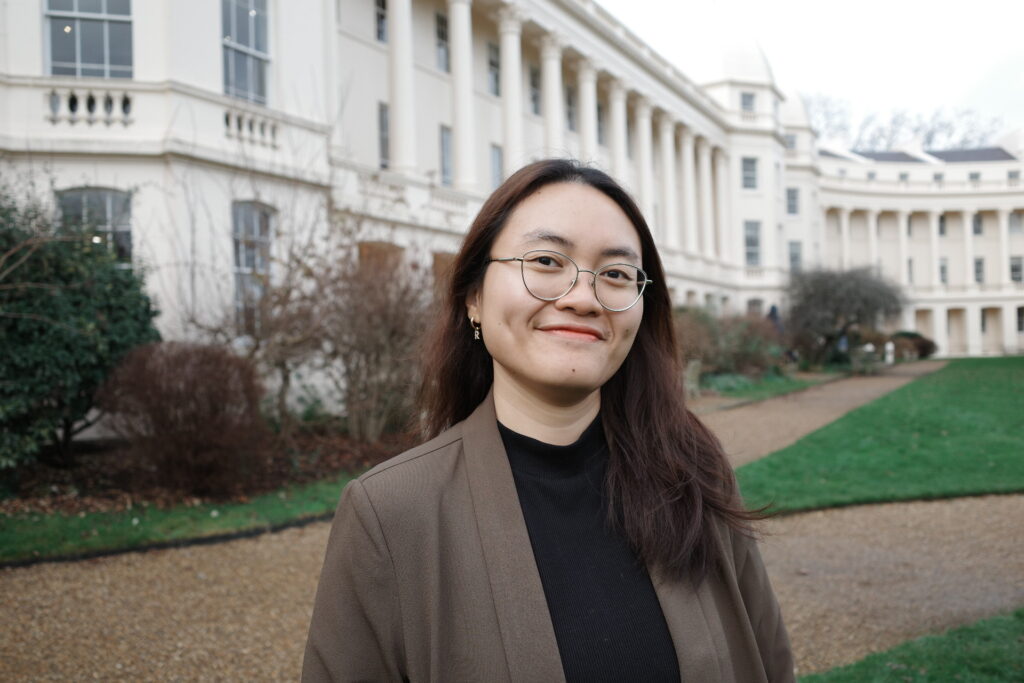By Ratih Istiqomah, MIFFT2025

I would not have been able to pursue my Masters in Finance degree without a scholarship. That’s how important sponsorship was in shaping my decision.
For many students, passion and ambition alone are not enough. Financial support is just as important. Studying abroad is expensive, with tuition fees, the high cost of living in cities like London, and the risk of leaving a full-time job all making it a difficult decision. Using personal savings or taking a student loan is not always possible.
These financial barriers are one reason why the number of people with a masters degree in countries like Indonesia, where I’m from, remains incredibly low. According to the World Bank, fewer than 1 percent of adults over 25 in Indonesia had a masters degree. That figure is lower than in neighbouring countries such as Thailand (2 percent) and Malaysia (1.6 percent), and far below rates in advanced countries like the United States (14.8 percent) and the United Kingdom (14.5 percent).
That is why sponsorships matter. They are the bridge between academic aspirations and the opportunity to pursue them.
I received a scholarship from Indonesia’s Ministry of Finance, known as the LPDP Scholarship. Like many scholarship programmes, the selection process was highly competitive. In 2023, only around 30 percent of applicants were successful. Some people succeed on their first try, while others apply more than once. This raises an important question: what does it take to secure a scholarship?
Applying for the scholarship required real commitment and an early start, with a clear timeline and set goals. From my experience, I dedicated evenings and weekends to the process: writing essays, requesting recommendation letters, taking the IELTS test, preparing for aptitude and reasoning tests, and practicing for interviews. Connecting with former awardees and mentors was especially valuable. Their insights gave me a clearer picture of what to expect and helped me notice things I might have overlooked.
From my own experience, and from what I learned from mentors and peers, here are six things that helped me succeed in the scholarship process:
- Begin and commit. It sounds simple, but the hardest part is often just starting. Do not wait for the perfect time, because it’s rarely clear when that moment is. Create a clear plan, set your deadlines, and stick to them.
- Clarify your “why.” Know your motivation for pursuing a masters degree and be able to express it clearly. If you’re not convinced yourself, it will be difficult to convince others.
- Do your homework. Research the programme and the school. Reach out to alumni and current students for honest insights.
- Seek feedback. Connect with past awardees, mentors, or peers to review your essays and discuss your plan. Their input can offer a fresh perspective and help build your confidence. Make sure to give them enough time, respect their schedule, and avoid putting pressure on them just because you’re in a hurry.
- Anticipate questions and practice interviews. Prepare by reading past interview experiences and exploring blogs or videos from previous applicants. List potential questions and try answering all of them. Practice with peers or mentors by simulating real interview scenarios. They might even surprise you with unexpected questions!
- Have a clear plan. Be specific about your short- and long-term goals, especially how you plan to give back, whether to your community, your home country, or the organisation that supported you. Use concrete examples to show what steps you’re already taking.
After receiving the sponsorship, it is important to remember that support comes with responsibility. I am constantly reminded of how privileged I am to be a sponsored student. That feeling comes back every time I walk through London or attend a lecture at LBS. I would not be here without the support I received. Those moments remind me to make the most of every opportunity and to give back in return for the trust I have been given.
For me, sponsorship was not just financial aid. It can be a catalyst for change, not only on a personal level but also for the communities I hope to serve.
